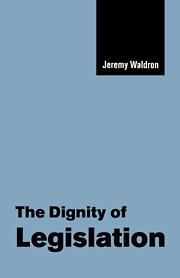5 - Aristotle's multitude
Published online by Cambridge University Press: 15 December 2009
Summary
There is a passage in Chapter 11 of Book III of Aristotle's Politics that has not been given the attention it deserves in modern discussions of Aristetlian political philosophy. Certainly it has not been given enough attention in the theory of democracy and in theories of popular legislation. I want to remedy that neglect. Indeed the aim of this chapter is to exaggerate the importance of this passage – to light it up in a way that may go far beyond the intentions of its author – in order to benefit from its illumination of other themes and passages whose importance for the Aristotelian project is, by contrast, indisputable.
The passage I have in mind is Aristotle's attempt to answer a question he poses about political sovereignty at the beginning of Chapter 10:
There is also a doubt as to what is to be the supreme power in the state: – Is it the multitude? Or the wealthy? Or the good? Or the one best man? Or a tyrant? Any of these alternatives seems to involve disagreeable consequences.
(65: 1281a11)After reviewing some of these consequences, Aristotle begins Chapter 11 by saying that there might be some truth in the principle that the people at large rather than the few best ought to be in power in the polis. He says (and this is the passage I want to focus on),
For the many, of whom each individual is not a good man, when they meet together may be better than the few good, if regarded not individually but collectively, just as a feast to which many contribute is better than a dinner provided out of a single purse. […]
- Type
- Chapter
- Information
- The Dignity of Legislation , pp. 92 - 123Publisher: Cambridge University PressPrint publication year: 1999
- 1
- Cited by



